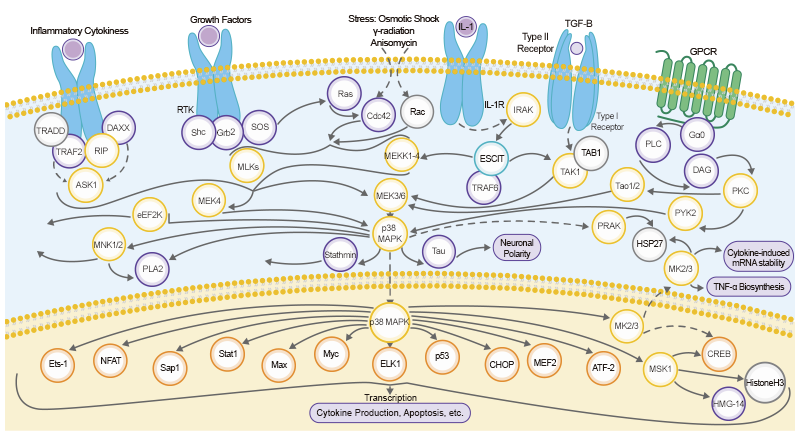 Having just moved a ludicrous amount of boxes and furniture into various U-Hauls and relocation tubes, I can feel all the literal weight of those decisions in my muscles and bones. Now that I'm back in Chicago, nursing my muscle soreness and the occasional bruise, I'm left thinking about the need for better muscular recovery and repair, which brings us to today's wonderful success story with an ABclonal customer as they added to our knowledge of myoblast differentiation and skeletal muscle development.
Having just moved a ludicrous amount of boxes and furniture into various U-Hauls and relocation tubes, I can feel all the literal weight of those decisions in my muscles and bones. Now that I'm back in Chicago, nursing my muscle soreness and the occasional bruise, I'm left thinking about the need for better muscular recovery and repair, which brings us to today's wonderful success story with an ABclonal customer as they added to our knowledge of myoblast differentiation and skeletal muscle development.
Muscle Development
When we talk about "muscle development," there are two main tracks to consider. The first is when we are growing up or when we are just trying to get healthier through exercise, which helps us slow the natural loss of muscle mass as we age. The other aspect, which is not necessarily more important but is likely of more interest to biochemists and cell biologists, is how the muscle cells develop in the first place. The study of muscle development, whether in the embryonic organism or in various stages of growth, revolves around the genes that encode for the proteins that make up the muscle or that regulate the expression of those factors. Disruption of any number of these genes could affect normal muscle growth and lead to muscular diseases. A greater understanding of the mechanisms underlying skeletal muscle development is crucial to alleviating the symptoms of muscular and neuromuscular ailments, which include the various forms of muscular dystrophy and could also mitigate the decline of patients suffering from ALS.
New Functions For An Old Protein
In their pursuit of finer mechanisms of muscular development, collaborators from the University of Massachusetts and Wesleyan University explored novel functions of pyruvate kinase isoforms. You may recall the pyruvate kinases as important in glycolysis, which provides the bulk of the energy in all cells. The more familiar role of pyruvate kinase is to convert a high-energy intermediate in the glycolytic pathway into pyruvate and ATP, and allow the pyruvate to enter the citric acid cycle for subsequent conversion into energy. In a recent publication in FASEB, the authors used a link reported for the muscle-specific PKM2 as a potential gene regulator in cancer to further explore pyruvate kinase function in myoblast differentiation.
Using phosphospecific antibodies targeting histone H3 at threonine 6, threonine 11, and threonine 45, the study observed the potential regulatory functions of the two muscle-specific enzymes, PKM1 and PKM2. Based on the previous reports of PKM2 affecting histone phosphorylation in cancer cells, the authors first knocked down or inhibited the function of PKM2, showing that cell proliferation was reduced as a result. Cell fractionation experiments also suggested that PKM2 can translocate to the nucleus, further supporting the possibility that it can indeed phosphorylate histones. Subsequent experiments demonstrated the key role of PKM2 in phosphorylating histone H3 at the aforementioned threonine residues, and also differential functions of both PKM1 and PKM2 in regulating myoblast differentiation through chromatin remodeling. It is always exciting to find unexpected new functions for established proteins!
How ABclonal Can Help
![]() ABclonal is honored to continue working with and supporting passionate scientists like you in further dissecting muscular development pathways or any other aspect of biomedicine you can dream of. Our product lines are validated by researchers in scientific publications like the one described in this post, which you can read at the FASEB site here. You can browse catalog antibody products, including the ones used by our valued customers above, as well as the Tanon Chemi-Image System used in their study, and feel free to contact us at service@abclonal.com for any additional assistance and guidance.
ABclonal is honored to continue working with and supporting passionate scientists like you in further dissecting muscular development pathways or any other aspect of biomedicine you can dream of. Our product lines are validated by researchers in scientific publications like the one described in this post, which you can read at the FASEB site here. You can browse catalog antibody products, including the ones used by our valued customers above, as well as the Tanon Chemi-Image System used in their study, and feel free to contact us at service@abclonal.com for any additional assistance and guidance.




